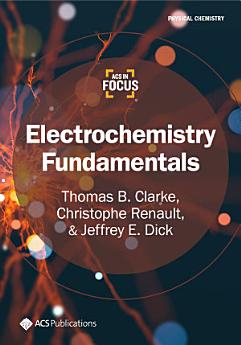Electrochemistry Fundamentals
Acerca de este libro electrónico
Acerca del autor
Thomas B. Clarke is a Ph.D. candidate in the Department of Chemistry at Purdue University. He received his B.S. in Chemistry from the University of Notre Dame in 2018. While teaching high school chemistry and biology for two years upon graduation, he earned his M.Ed. from the University of Notre Dame in 2020. He then began his graduate research in chemistry at the University of North Carolina at Chapel Hill and has continued this work under the direction of Jeffrey Dick at Purdue University, where he is using electrochemistry to study unique chemistry that happens in confined volumes and at liquid|liquid interfaces. In addition to his research interests, he loves reading through the literature in chemistry education and studying electrochemistry's role in the history of chemistry and science.
Christophe Renault received his Ph.D. in Molecular Electrochemistry from the University Paris 7 Denis-Diderot, Paris, in 2012. After postdoctoral stays in the groups of Richard Crooks, Allen Bard, and Serge Lemay, he started his independent career as a researcher at the Centre National de la Recherche Scientifique in France. He has worked since 2016 in the Laboratory of Condensed Matter Physics at the Ecole Polytechnique in Palaiseau. He is interested in analytical and physical problems related to electrochemistry. Dr. Renault is developing coupled opto-electrochemical measurements to decipher interactions between electrified interfaces and individual molecules or particles. His expertise covers charge and mass transfer/transport theories, coupled electrochemical and chemical reactions, numerical simulation, and instrumentation.
Jeffrey E. Dick received a B.S. in Chemistry from Ball State University (2013) and a Ph.D. in Chemistry from the University of Texas at Austin (2017), where he studied under Prof. Allen J. Bard. In 2018, Jeffrey began his independent career at the University of North Carolina at Chapel Hill and is now the Richard B. Wetherill Associate Professor of Chemistry at Purdue University. Jeffrey's research group is broadly interested in fundamental and applied electrochemistry, believing that developing new measurement tools can elucidate new truths of nature.








